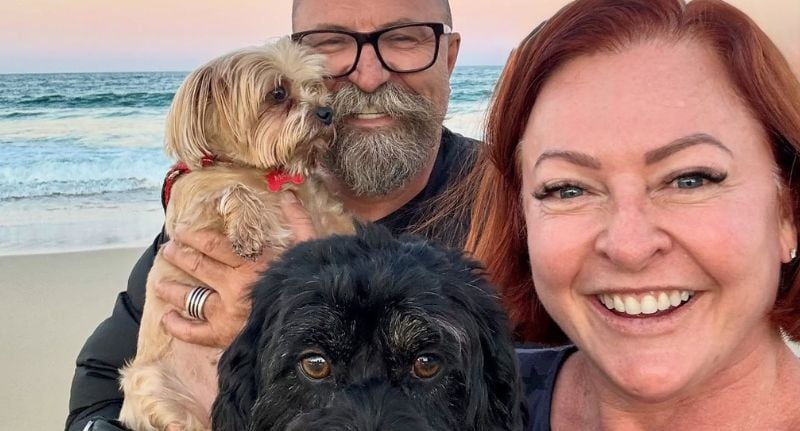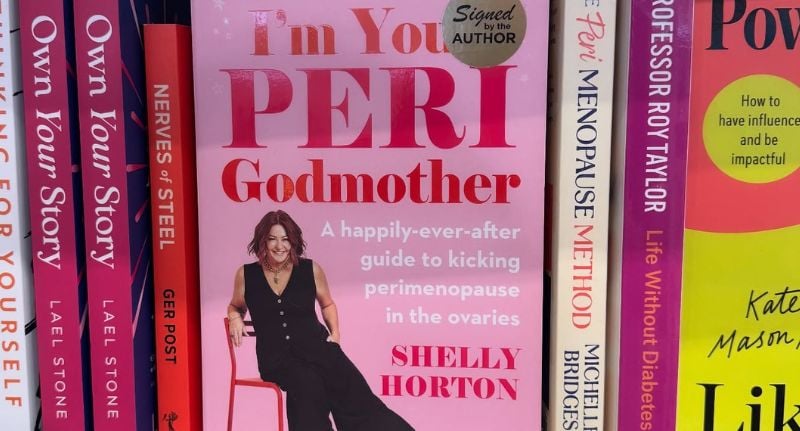After three decades in journalism, Shelly Horton has done it all: crime reporter, TV presenter, author, MC, and now, media trainer.
“I’m a journalist and have been for 30 years,” Horton told Mediaweek’s Newsmakers.
“I actually started in ABC Radio as a crime reporter, and I loved a dead body,” she laughed. “I do miss those crime days, and it was before True Crime podcasts were even a thing.”
But after years of newsroom deadlines and a few too many creative clashes, Horton decided to take control of her own story. “About 10 years ago, I flipped the switch. The problem I had with working in the media was that I was always arguing with my bosses. And I know we’re trained to argue, but you know the best solution for that? Become your own boss.”
That decision led to the creation of ShellShocked Media, which she co-founded with her husband Darren Robinson. “We train people to speak well – whether they’re being interviewed by the media, going on TV, or just small business owners learning how to describe what they do clearly.”

Shelly Horton and husband Darren Robinson.
Kicking perimenopause ‘in the ovaries’
When Horton isn’t training executives, she’s making noise about women’s health. Her book, I’m Your Peri Godmother: A Happily Ever After Guide to Kicking Perimenopause in the Ovaries, mixes humour with hard truths.
“I think that title really sets the tone for the whole book. It’s conversational, but it taps into a time in my life where I got absolutely kicked to the ground, and had to claw my way back up,” she said.
That experience pushed her into activism. “I didn’t just get mad; I went to Parliament,” she recalled. “In 2023, I was part of the very first parliamentary roundtable on menopause. And can you believe that only two years ago was the first time menopause had ever been mentioned in Australian Parliament?”
Her frustration still lingers. “Part of what I campaigned for was compulsory education for GPs, because, believe it or not, if your doctor is Gen X or older, they’ve probably had less than one hour of training on perimenopause.”
For Horton, advocacy comes without a paycheck but with purpose. “It’s important for people to know that when you become a health advocate, when you have meetings with people like the Federal Health Minister, Mark Butler, you don’t get paid for that. You do it because you don’t want other women to suffer the way you have.”
Still, she’s quick to recognise progress. “We had the Senate inquiry, and there was a risk the government would just say, ‘Too hard, not interested.’ But they said yes. And yes, it was an election year – but the Liberal Party also said yes. So, it’s happening. They’ve put half a billion dollars into women’s health, which is amazing.”
She smiles, but with caveats. “I’m not giving them a full pat on the back – I’m still nipping at their heels a bit. We will make change.”
And that change, she says, is already visible. “One of the important HRTs (Estradiol) has been added to the PBS. I went into my pharmacy, got my HRT, and then posed for a photo saying, ‘It’s 50% off now, thank you very much!’ That’s when you know you can make real change.”

Teaching CEOs the five Ps
From the corridors of Parliament to the boardroom, Horton’s energy is relentless. Her focus also includes helping CEOs and C-suite leaders find clarity, warmth, and confidence when speaking.
“Usually their biggest fear is that they’ll make a fool of themselves” she said. “My best advice? Don’t wing it.”
Horton’s golden rule applies to anyone in the spotlight: “Whether I’m teaching media training or presentation skills, that’s the golden rule. Very few people can just get up and perform without preparation.”
Her framework is simple but sharp. “Put in the time – whether it’s for a Christmas party speech, an uncomfortable conversation with a staff member, or talking about your company on television. Preparation matters. I call it the five Ps: Prior Preparation Prevents Piss-poor Performance.”
She encourages executives to keep it human: “Remember, you’re having a conversation. It’s not about jargon, acronyms, or CEO-speak that doesn’t cut through. Tell me a story. Share an anecdote, something that happened to you or someone in your workplace. That’s what people will remember. Not stats. Not spin. Humans remember humans.”
And for those who panic under pressure? She’s got a hack for that too. “If you get put on the spot and go blank, here’s my trick: when something meaningful happens, jot it down in your phone’s notes. Just dot points. That way, you’ve got a library of stories to draw on later.”
A journalist at heart
For all her success as a business owner, mentor, and advocate, Horton’s storytelling roots still show. And that early training in observation, rhythm, and restraint still underpins her philosophy today.
“Being overly critical isn’t helpful. Instead, look at things through the lens of: how can I improve?” she advised.
“Maybe you’ve got a repetitive hand gesture you didn’t even realise you were doing – it’s just nerves. You see it on playback, and you fix it next time. You prepare. You breathe.”
For the full episode, including all of Horton’s tips for public speaking, check out Mediaweek’s Newsmakers wherever you get your podcasts.
